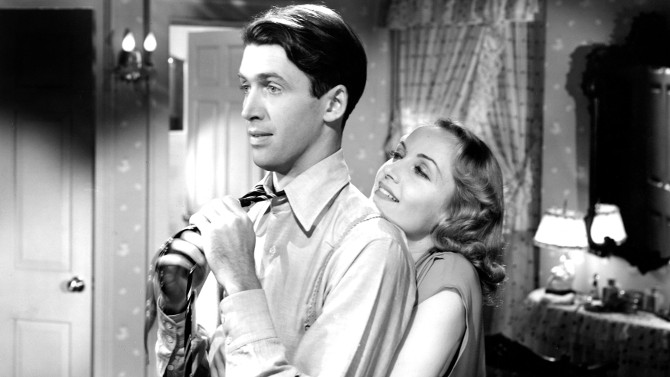
Just the Two of Us (& a Mother-In-Law)
And they say things move pretty fast in the 21st century. . . in 1939's Made for Each Other, directed by John Cromwell, the protagonist couple marry after one short day of courtship – and they weren’t even in Las Vegas (instead, Boston). A bizarre script structure, this David O. Selznick production takes an almost vignette-style look at marriage (the opening credits actually feature the couple signing the marriage certificate – a nice touch) – with no foreshadowing or traditional setup in the first two acts, like in life, things just arise out of nowhere. . . yet, despite this unusual format, there is still enough to catch your interest.
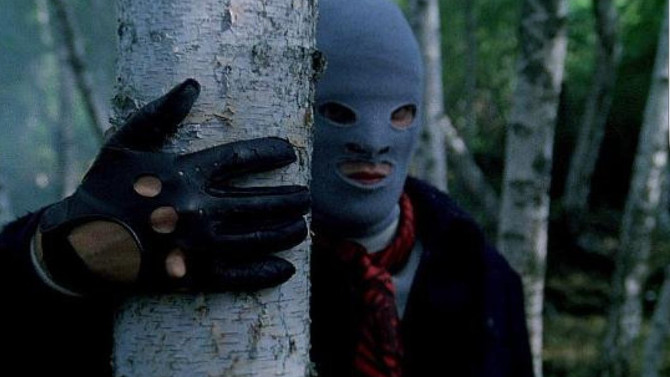
Body of Work
The ‘slasher’ sub-genre of horror is often said to have started with two films, 1974's Black Christmas and 1978's Halloween (while others might also lump 1974's The Texas Chainsaw Massacre in with that grouping), and that very much may be true, but some of its roots most definitely grew out of the giallo films of the late sixties and early seventies, case in point, Sergio Martino’s 1973 horror mystery thriller Torso – featuring all of the trimmings (pardon the pun) that would soon litter each and every slasher flick to come. Now, what should one expect to see in a movie like Torso. . . sex-crazed teens (who tend to investigate strange noises instead of finding safety, or wander off alone in unpopulated areas), suspicious looking peeping Tom’s (likely a red herring or two), an unknown psychopathic killer who uses some sort of bladed weapon (the suspense is killing me – as the murderer is masked. . . and not only uses a knife, but an ascot to strangle those unlucky individuals – I doubt it’s Fred from Scooby-Doo) – all these tropes would soon be found in your prototypical slasher film.

Spinning Your Wheels
To be completely honest, when a producer acquaintance of mine, Noah Lang, who I met at the St. Lawrence International Film Festival several years ago, contacted me and was wondering if I would watch a documentary he was producing on ‘mudding’, I was wholly unaware of the term. Defined in the Urban Dictionary, “To go out in the mud in the back of a truck or jeep or other 4x4 vehicle and spin in the mud until all occupants are covered in mud”, directors Andrei Bowden-Schwartz and Sam B. Jones focus this topic on a family living in Orlando, Florida.
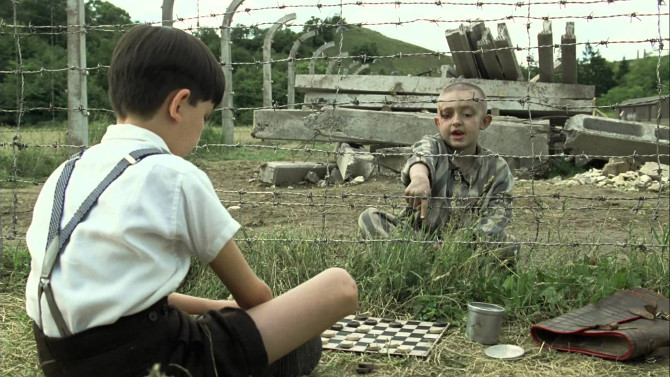
Across the Fence
An effective method of telling a dark story is often through the eyes of a child. . . and there is arguably no darker event in human history than the Holocaust. Earning praise from audiences worldwide and criticism by academics who lament its inaccuracies, The Boy in the Striped Pyjamas (2008), directed by Mark Herman (who also adapted the story for the screen, based upon John Boyne’s novel of the same name), is an emotional, poignant depiction of one of the most horrific blemishes of our collective past. Bruno (Asa Butterfield) is an eight year old boy living in Berlin. With a father (David Thewlis) moving up in the military, a supportive mother (Vera Farmiga), and an older sister, Gretel (Amber Beattie), they are leaving their life in the big city for a cold home in the rural unknown.
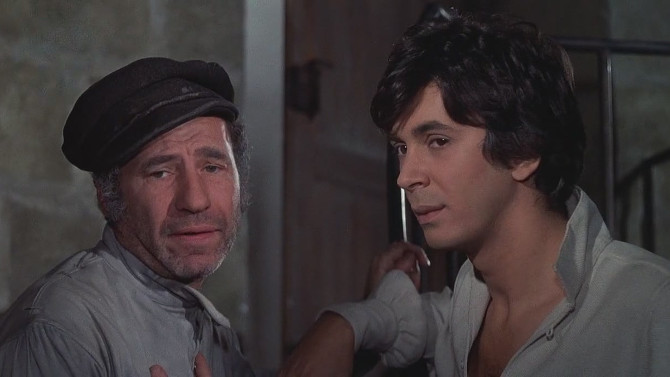
Hope For the Best, Expect the Worst
A slick con artist, an unscrupulous priest and a ruined aristocrat walk into a house. . . sounds like a joke; it kind of is – for this is the lead-in to Mel Brooks’ 1970 comedy The Twelve Chairs. Loosely based on the 1928 Russian novel of the same name (written by Ilf and Petrov), this film is arguably the black sheep of Brooks’ filmography, a more artsy piece that is less laugh out loud funny, and instead, more of a thinking man’s funny – for instance, as a character wanders the Soviet streets at the beginning of the film (set in 1927), he passes two different street signs, the original: “Czar Nicholas II Avenue”; the new one, “Marx, Engels, Lenin & Trotsky Street – with a line running through the final name” – if you know your history, Nicholas and his family were executed during the Russian Revolution of 1917, while the name Trotsky has been eliminated, as in the very year this story is set, Joseph Stalin ran him out of the country and into exile – in 1940, Stalin would have him killed in Mexico City by way of an ice axe (I almost had a really good ice pun for this, but it slipped my mind). . . fear not, Brooks works some cheesy humour into the story as well.
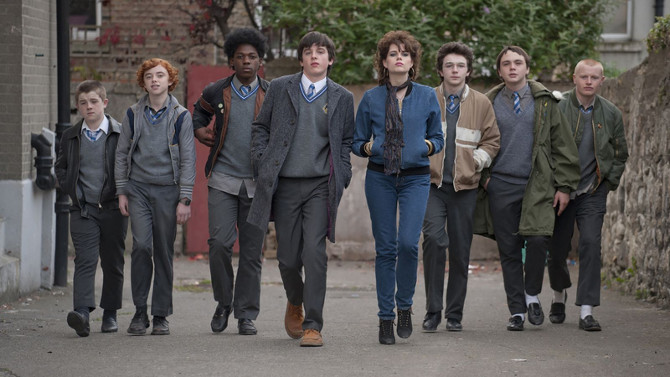
The Road Less Travelled
Learn an instrument, form a band, get the girl. . . the fantastical dream steps of many a wannabe rock star, yet the main character in John Carney’s 2016 musical dramedy Sing Street takes a slightly different route – ah, the road, or should I say street, less travelled (which, of course, is the oft misused false-title of Robert Frost’s “The Road Not Taken”). Welcome to 1985 Dublin, country floundering, jobs nonexistent, an existential crisis smothering the Populus. . . a place where teenager Conor is trudging through the early part of his life (his only saving grace, music). His parents, struggling architect Robert (Aidan Gillen – Game of Thrones) and ‘cut back to three days of work a week’ Penny (Maria Doyle Kennedy – Orphan Black), are constantly bickering – eldest sibling Brendan (Jack Reynor), a dope smoking college dropout who is an inspiration to Conor, even surmises that their mom may be having an affair. Youngest Ann (Kelly Thornton) must also be mentioned, for she is the sister who is often criticized for leaving her art dreams behind to pursue architecture (like her father).
